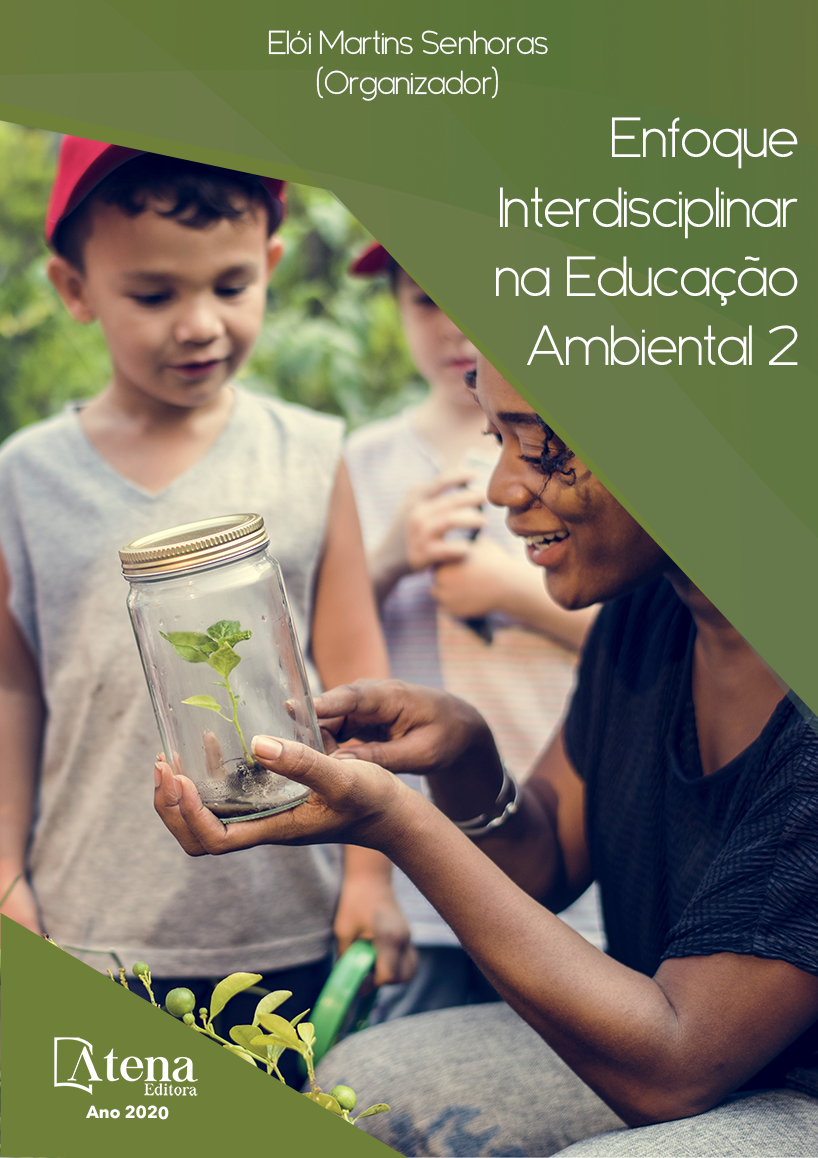
EDUCAÇÃO AMBIENTAL E A PRÁXIS COMO COMPONENTE CURRICULAR NA FORMAÇÃO DE PROFESSORES
Neste estudo, descreve-se a prática
como componente curricular integrada aos
cursos de Licenciatura Interdisciplinar em
Ciências Naturais e Licenciatura em Ciências
Biológicas, da Universidade Tecnológica
Federal do Paraná, Campus Ponta Grossa.
O projeto pedagógico dos cursos adotou a
perspectiva interdisciplinar emancipadora para
a formação docente, buscando superar a visão
de conhecimento fragmentado, a-histórico e
descontextualizado, e preparar o futuro professor
de Ciências Naturais e Biológicas para enfrentar
os desafios contemporâneos e em diferentes
contextos socioeducacionais, atendendo
aos pressupostos da Base Nacional Comum
Curricular (BNCC) aprovada recentemente pelo
Conselho Nacional de Educação e oficializada
pelo Ministério da Educação. A Educação
Ambiental, nesse contexto como dimensão da
educação entendida em seu papel transformador
e emancipatório, é trabalhada no curso como
atividade intencional, sistêmica e complexa
da prática social, com vistas à formação inicial
de professores de Ciências, com a inserção
saberes socioambientais necessários à uma
prática docente crítica e transformadora.
EDUCAÇÃO AMBIENTAL E A PRÁXIS COMO COMPONENTE CURRICULAR NA FORMAÇÃO DE PROFESSORES
-
Palavras-chave: Disciplina Articuladora, Formação Docente, Interdisciplinaridade.
-
Keywords: Articulating Discipline, Teacher Training, Interdisciplinarity.
-
Abstract:
This study describes practice
as an integrated curricular component of the
Interdisciplinary Degree in Natural Sciences
and the Degree in Biological Sciences at the
Federal Technological University of Paraná,
Ponta Grossa Campus, Brazil. The pedagogical project adopted the emancipating
interdisciplinary perspective for teacher training, seeking to overcome the fragmented
vision of knowledge (nonhistorical and decontextualized) and to prepare the future
teacher of Natural and Biological Sciences to face contemporary challenges in different
socio-educational contexts. Therefore, the assumptions of the Common National
Curricular Base (CNCB) recently approved by the National Council of Education and
officialized by the Ministry of Education will be met. Environmental Education, considered
a transformative and emancipatory dimension of education, is developed in the course
as an intentional, systemic and complex activity of social practice, seeking an initial
formation of science teachers with the insertion of socio-environmental knowledge
necessary for a critical and transformative teaching practice.
-
Número de páginas: 15
- NATALIA DE LIMA BUENO BIRK
- ELIZABETE SATSUKI SEKINE
- EDSON JACINSKI
- DANISLEI BERTONI
- Lia Maris Orth Ritter Antiqueira


